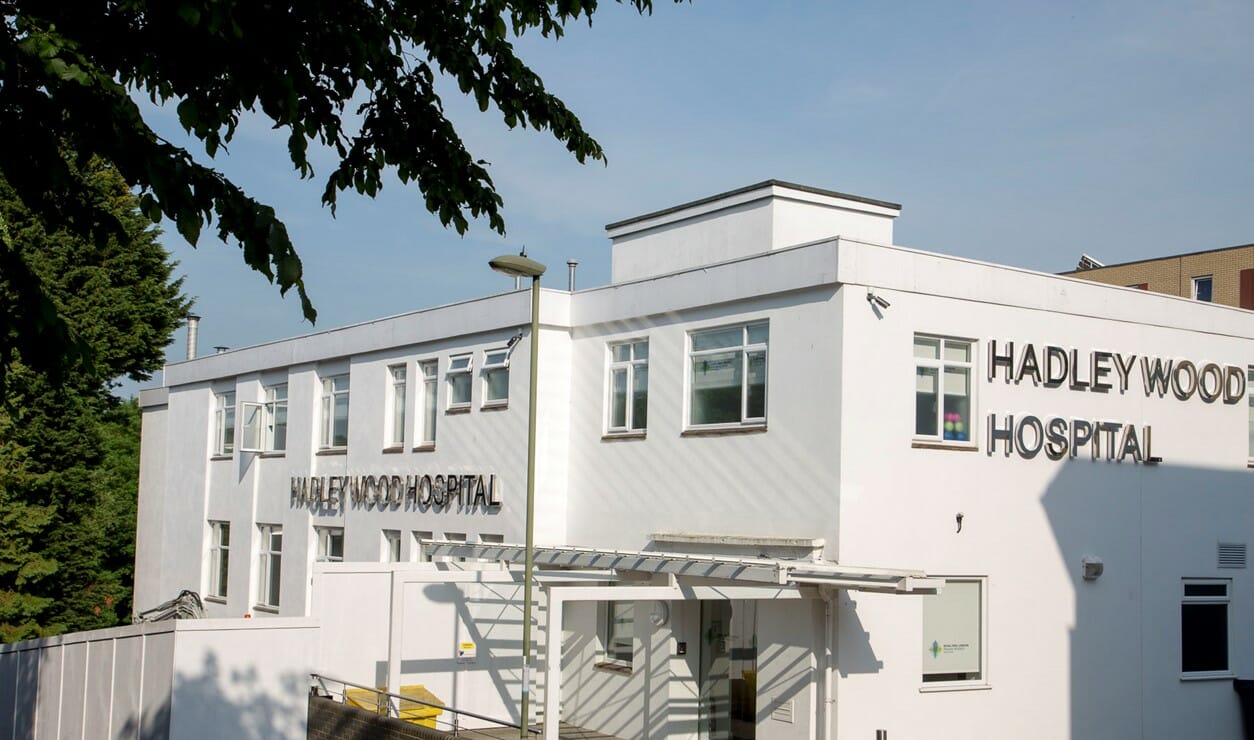Flexible sigmoidoscopy

Our private Flexible sigmoidoscopy services are provided at the Hadley Wood Hospital, High Barnet.
To find out more about our hospitals click here:
A flexible sigmoidoscopy is a procedure used to examine the inside of the lower section of the large intestine (also known as the ‘sigmoid colon/bowel’).
Why do I need a flexible sigmoidoscopy?
The procedure is mainly used for investigative purposes, for example to check for signs of bowel cancer in patients experiencing symptoms such as rectal bleeding or blood in their stools and changes in bowel function, or to monitor the bowel lining in people with previously diagnosed bowel conditions. Additional procedures may sometimes be carried out at the same time, such as removing a tissue sample (biopsy) for closer examination in the lab, or removing intestinal polyps.
The procedure
A flexible sigmoidoscopy is usually carried out as an outpatient procedure, meaning you’ll be able to go home shortly afterwards. A soft, flexible tube with a light and camera on the end, called a sigmoidoscope, is used to carry out the examination. You’ll be asked to lie on your side with your legs bent. The specialist will apply a lubricating gel to the scope before gently inserting it into your rectum and passing it into the colon. A very small amount of gas is passed through the scope to gently expand the colon and make it easier to see all of the lining. Images will relay from the scope onto a screen, allowing for close examination of any abnormalities. If additional steps are required, such as a biopsy, very small cutting tools will be passed through the scope to enable to specialist to remove some tissue.
While it’s natural to feel a bit nervous before a flexible sigmoidoscopy, the procedure shouldn’t be painful or too uncomfortable and usually only takes around 10-20 minutes to complete. However, if you are worried, don’t be afraid to tell us – we’ll do our best to ensure you feel fully informed about what’s going to happen and, if necessary, a sedative can be used to help you relax. This will mean you can’t drive for at least 24 hours afterwards so will need somebody to take you home.
You may feel slightly bloated for a few hours after the procedure, but most people are able to carry on with regular activities right away. On rare occasions, bleeding or a tear can occur – your consultant will explain any potential risks and signs to look out for.
Your consultant may be able to explain any observations made during the procedure right away. However, if a biopsy was taken, it can take a few days for results to be available. A follow-up appointment will be arranged to discuss any outcomes or further treatment required.
